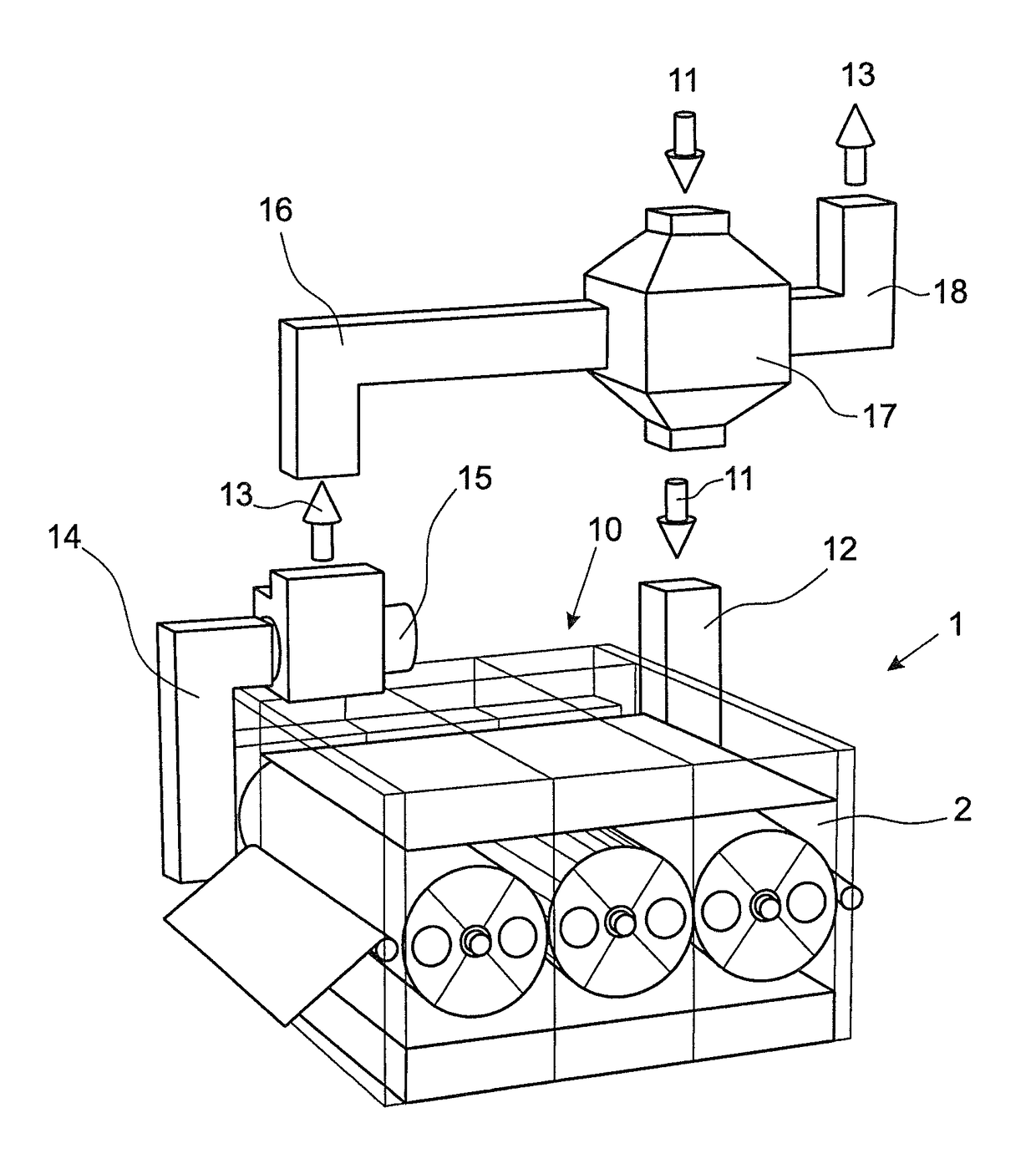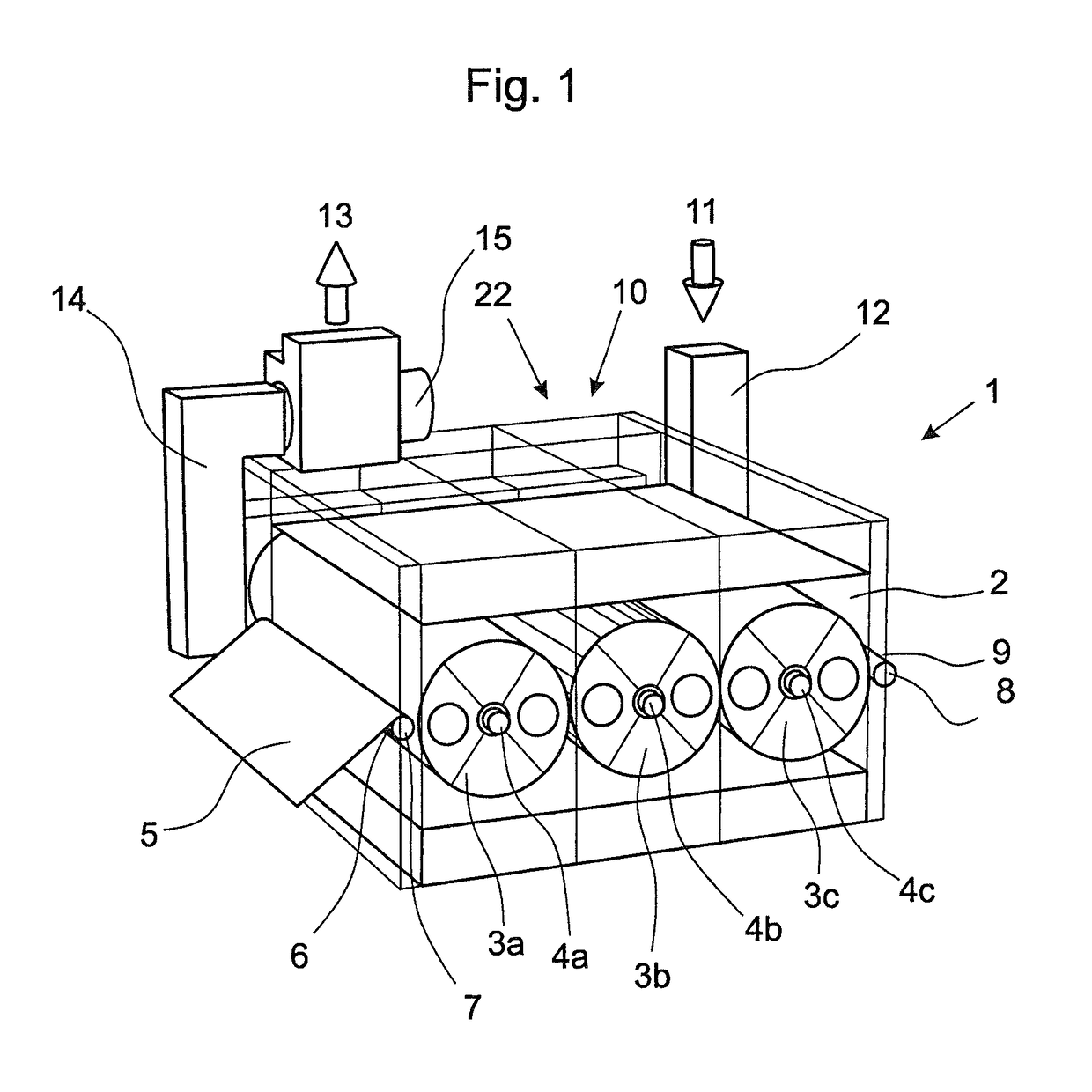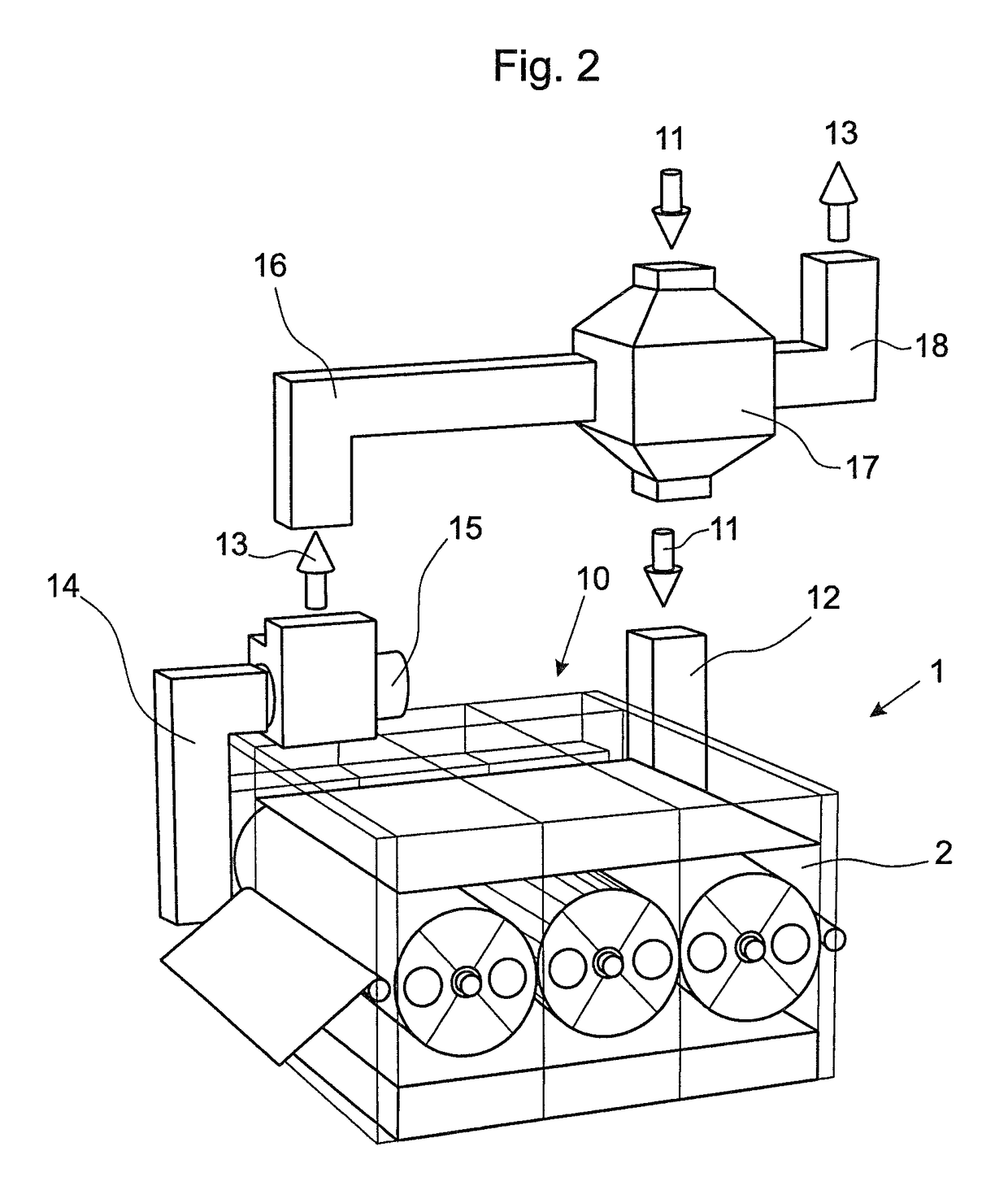Dryer for a textile product web
a textile fabric and dryer technology, applied in drying machines, drying machines with progressive movements, lighting and heating apparatus, etc., can solve the problems of high maintenance cost, high level of sealing, and disruption of air circulation inside the dryer compartment, so as to minimise flow loss and construction. compact
- Summary
- Abstract
- Description
- Claims
- Application Information
AI Technical Summary
Benefits of technology
Problems solved by technology
Method used
Image
Examples
Embodiment Construction
[0022]FIG. 1 shows a dryer 1 in the form of a serial dryer. Inside a dryer chamber 2, three drums 3a, 3b, 3c are arranged one after the other and with their axes 4a, 4b, 4c in a row. A fabric web 5 is guided into the dryer chamber 2 via an inlet 6. By means of a guide roller 7, the fabric web 5 is guided first under the first drum 3a, then above the second drum 3b and subsequently under the third drum 3c. By means of the guide roller 8, the fabric web 5 is guided out of the dryer chamber 2 through an outlet 9. Heated drying air flows through the fabric web 5 during its passage through the dryer chamber 2, the drying air absorbing the moisture of the fabric web 5 and being extracted via the interior of the drums 3a to 3c.
[0023]According to the invention, there is arranged at the dryer chamber 2 an additional compartment 10 into which the channel 12 for the fresh air 11 and the channel 14 for the exhaust air 13 open.
[0024]The additional compartment 10 is constructed so as to be fully...
PUM
 Login to View More
Login to View More Abstract
Description
Claims
Application Information
 Login to View More
Login to View More - R&D
- Intellectual Property
- Life Sciences
- Materials
- Tech Scout
- Unparalleled Data Quality
- Higher Quality Content
- 60% Fewer Hallucinations
Browse by: Latest US Patents, China's latest patents, Technical Efficacy Thesaurus, Application Domain, Technology Topic, Popular Technical Reports.
© 2025 PatSnap. All rights reserved.Legal|Privacy policy|Modern Slavery Act Transparency Statement|Sitemap|About US| Contact US: help@patsnap.com



